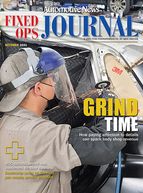A major source of emissions in battery production occurs during the processing of raw materials such as nickel and cobalt. The associated smelting and purification processes are extremely energy-intensive, said Benjamin Passenberg, Porsche senior manager of high-voltage system concepts.
"It's very important to have green energy, especially in cell production, where you need a lot of energy to heat things," Passenberg told Automotive News at a media event here.
Porsche is leading by example. The automaker said it will invest more than $1.1 billion in decarbonization measures over the next decade, including reducing assembly plant CO2 emissions. Taycan production at the Zuffenhausen plant in Stuttgart, for instance, has been carbon neutral since its launch.
But using green power to manufacture batteries won't be enough by itself for Porsche to reach its ambitious emissions targets. It will require reimagining the battery itself.
To do that, Porsche is developing a battery it says will pack more power, charge faster and have a lighter carbon footprint.
The technology relies on using a greater amount of silicon as the anode material in the lithium ion cell, rather than just the typically used graphite.
Theoretically, silicon anodes have about 10 times higher energy density, said Otmar Bitsche, Porsche's head of electromobility.
"We expect about 20 to 25 percent more watt-hours per liter compared with conventional lithium ion batteries," Bitsche said.
Energy-efficient cells mean fewer are needed to power a vehicle, reducing the overall weight and footprint of the battery pack — a critical requirement in an EV.
The new battery's "pouch" cell design is also environmentally sustainable because it reduces the aluminum housing material compared with a cylindrical cell design. Aluminum production is a major emitter of carbon emissions.
Significantly, the new cell will have less cobalt content than a typical lithium ion cell.
"Cobalt is difficult to source — there are only a few mining sites worldwide and often in countries with questionable human rights," Passenberg said.
Cobalt accounts for 20 percent of the cathode material in the Taycan battery. Porsche hopes its new technology will shrink the cobalt content to 5 to 10 percent.







